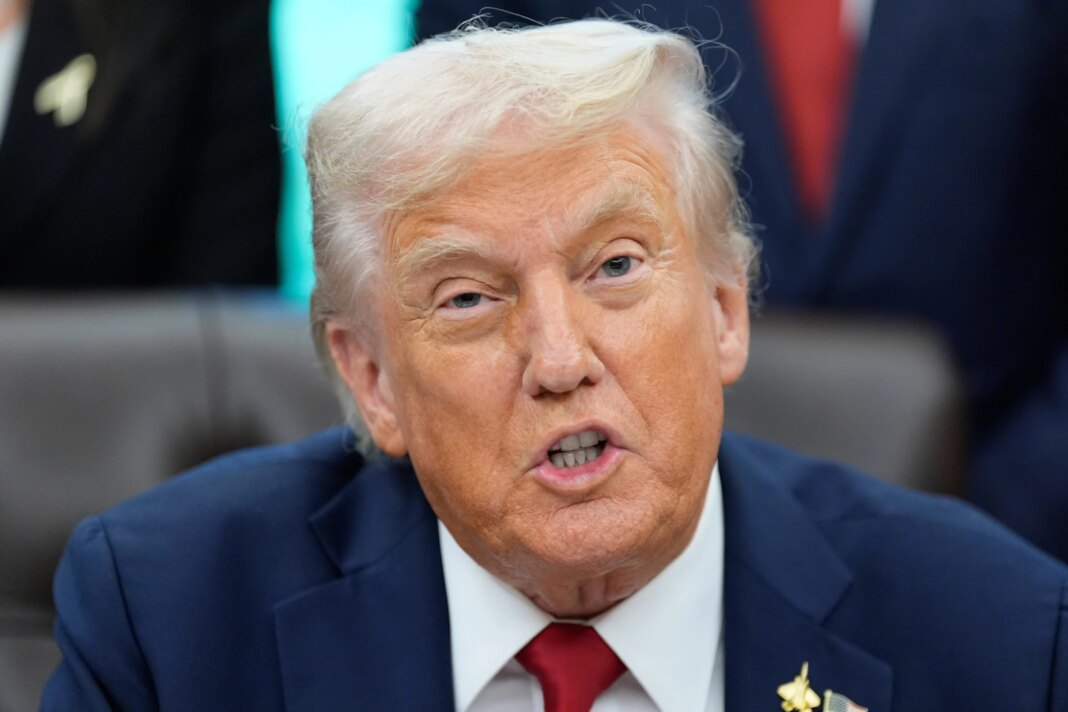Trump’s Strategic Maneuvering During the Government Shutdown
As the government shutdown unfolds, former President Donald Trump is seizing the moment to reshape the federal workforce and enforce his agenda. With his administration threatening mass firings and proposing drastic cuts to programs traditionally favored by Democrats, the stakes have never been higher.
A Shift from Furloughs to Layoffs
Typically, when government funding lags, federal employees face furloughs, a temporary leave without pay. However, amid this latest shutdown, White House Press Secretary Karoline Leavitt has made waves by declaring that layoffs are “imminent.” The Office of Management and Budget (OMB) has already withheld roughly $18 billion in infrastructure funds, notably affecting projects in New York—the home state of key Democratic leaders.
Leadership Praise and Budget Strategies
Trump has publicly lauded his budget director, Russ Vought, who plays a pivotal role in orchestrating the administration’s financial strategy. Praising Vought’s ability to efficiently trim budgets, Trump suggests that this shutdown offers a unique opportunity to affect changes that would otherwise be politically challenging. By hinting at “irreversible” cuts, the administration underscores its commitment to an aggressive fiscal policy during a period of political discord.
The Seed of Uncertainty
As the shutdown enters its second day, tension among congressional leaders is palpable. Concerns voiced by lawmakers and budget experts seem to be materializing; given Congress’s inability to act, the White House is poised to take unprecedented control over budgeting actions. In a private call, Vought warned House Republicans of impending layoffs, echoing initiatives launched earlier in the year that focused on increasing government efficiency, albeit at a steep human cost.
Economic Ramifications of the Shutdown
The consequences of a prolonged shutdown bear serious implications. The Congressional Budget Office (CBO) forecasts that around 750,000 federal employees could face furloughs, resulting in a staggering loss of $400 million in wages each day. Historical data suggests that past shutdowns led to reduced economic activity, with negative effects on aggregate demand that ripple through the private sector. Analysts caution that prolonged inaction could dampen economic performance, further exacerbating the situation.
Political Tensions and Legislative Stalemates
As the standstill continues, both parties seem to hold fast to their respective positions. Democrats are staunchly advocating for the preservation of healthcare funding, warning that failure to do so could precipitate pricing crises for millions. The Kaiser Family Foundation’s estimates indicate that insurance premiums for those purchasing policies through the Affordable Care Act exchanges could more than double if funding fails to materialize.
A Willingness to Negotiate?
While some leading Republicans have expressed a willingness to engage in discussions about healthcare, they argue that these conversations can wait until the current funding crisis is resolved. Vice President JD Vance articulated the GOP’s position, suggesting a future dialogue regarding healthcare access, yet emphasizing that immediate concerns take precedence.
Choosing Funding Priorities
Unique mechanisms have arisen amid this shutdown that allow the Trump administration to prioritize certain areas, particularly national security. The administration can utilize specific funds earmarked for the Defense Department and Homeland Security, thus ensuring that Trump’s immigration enforcement agenda remains active while other agencies face significant funding challenges. This prioritization raises questions about fairness and the equitable treatment of federal employees across various departments.
Legislative and Legal Challenges Ahead
Throughout this turmoil, Vought has been at the forefront of contesting the traditional authority of Congress over funding. His efforts to reclaim previously allocated funds have sparked legal contestations, resulting in government watchdog groups issuing rare warnings over the administration’s financial practices. Despite judicial challenges, including a ruling from the Supreme Court upholding some of the administration’s controversial decisions, the confrontation over budget reinstatement continues.
The Stakes Are Uncertain
As lawmakers remain entrenched in their positions, with the next sessions looming on the horizon, the immediate future appears precarious. With no scheduled meetings between Trump and congressional leaders, the likelihood of a resolution seems dim, leaving an entire country waiting to see how these unfolding events will impact everyday lives, federal employment, and the broader economic landscape.



